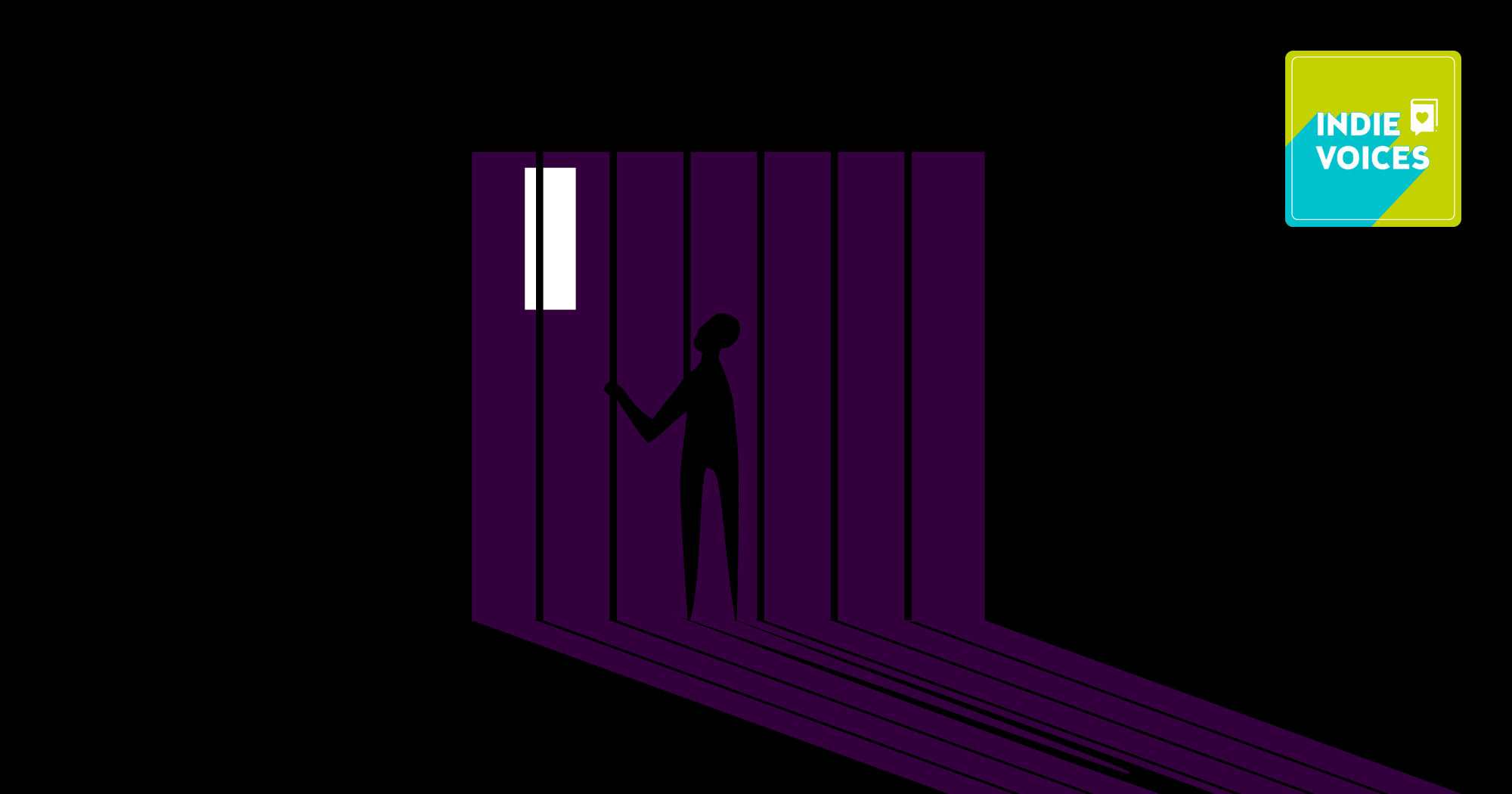IndieVoices Podcast: Authors Expose Criminal Justice Abuses, Propose Solutions

A few years ago, I wrote an article about a corrections officer who was doing innovative things with the local jail inmates under her care. She had this crazy idea that if you care about the inmates, listen to their problems, give them the support and tools to succeed, then they might not make return visits. She would lead them on guided meditation. Playing soothing New Age music, she would have them close their eyes and think of themselves as having the slate wiped clean and have a plan for when they left.
“This uniform confuses people,” she told me in an interview. And by “people,” she means the people who wear the uniforms. “It confuses your ego.” Civilians, she said, “outrank” police officers. “We’re here to provide a service.”
When I spoke to other officers about her on the phone, I could practically see their eyes roll to the backs of their heads. She was considered a little bit crazy. And maybe she was. The idea of trying to make life comfortable for those who have broken the law does seem crazy in the context of a criminal justice system in the United States that is mad in itself. The convicted—mostly the poor and African Americans, the mentally ill and the drug addicted—are forced into a system of perpetual abuse that make us no safer. In fact, the system is self-perpetuating, traumatizing its captives and causing collateral damage in devastated families and communities.
So, over the past few years, I’ve made it a side project of mine to interview as many authors as possible who have studied the problem and possible solutions to our barbaric criminal justice system. I’m lucky because I have a job that lets me do that. Indie publishers are more likely to publish books that take chances and print many points of view when it comes to a topic as controversial and many-faceted as criminal justice reform. This episode of IndieVoices, from Foreword Reviews, is focused on authors who are shining a light on some of the most shameful abuses in our society, but also proposing solutions.
You can listen to the entire podcast here, or individual interviews at the links below. Please let me know what you think.
IndieVoices: Criminal Justice Reform
After Exoneration: Alison Flowers first caught my attention a year ago, when I reviewed her book, Exoneree Diaries: The Fight for Innocence, Independence, and Identity, published by Haymarket Books. What struck me about the book was its matter-of-fact style as it described the daily lives of those who have been released from prison after having been wrongly convicted. Listen to my full interview with Alison Flowers.
European Justice: In his book, Unusually Cruel: Prisons, Punishment, and the Real American Exceptionalism, from Oxford University Press, Marc Howard compares and contrasts prison conditions in other industrialized democracies—France, Germany, and the UK—with that of the United States. Marc is professor of government and law and director of the Prisons and Justice Initiative at Georgetown University. He spoke with me about the idea of paying your debt to society and second chances, concepts that are absent in America’s justice system. Listen to my interview with Marc Howard.
College in Prison: We recently reviewed a book called Liberating Minds: The Case for College in Prison, published by The New Press. What first struck me about the book was the subtitle, The Case for College in Prison, as if a case needs to be made. To me, it seems like a no-brainer. Of course there should be educational opportunities in prison. It’s the perfect place for education—that is, if the idea of prison truly is “corrections.” But if anybody can effectively make that case it’s Ellen Condliffe Lagemann. She is is the Levy Institute Research Professor at Bard College, where she is also the Distinguished Fellow in the Bard Prison Initiative. Listen to my full interview with Ellen Condliffe Lagemann.
Books to Prisoners: For prisoners, whether in your local jail or in state or federal prison, a book may be the only thing that keeps them sane. The ability to learn a new language, about history, or just to travel to other worlds, can help engage a mind and prevent it from spiraling into depression and despair. Seattle-based nonprofit Books to Prisoners has been donating books to inmates since 1973. Board member Joan Lehmiller Ross talked to me about the books prisoners prefer, and those that prison wardens ban. Some are more than a little surprising. Listen to my interview with Joan Lehmiller Ross.
You can also subscribe to all our IndieVoices podcast episodes on iTunes, Soundcloud, and Google Play.

Howard Lovy is executive editor at Foreword Reviews. You can follow him on Twitter @Howard_Lovy
Howard Lovy
